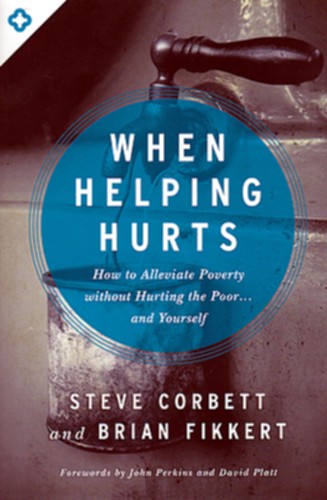
I’ve spent most of my life in and around communities desiring to care for the financially underprivileged. Join the many ministries and churches that are already implementing these ideas, transforming their culture of poverty alleviation, and moving toward helping the poor without hurting them.Don’t you just hate it/love it when a book takes a long-standing ministry practice or cultural disposition you’ve unwittingly nurtured and totally applies the ol’ command-option-esc (or control-alt-delete to be P.C.) to completely reset things? A text I’ve been reading for the Kern Reading group at Talbot School of Theology-namely, Steve Corbett and Brian Fikkert’s, When Helping Hurts: How to Alleviate Poverty without Hurting the Poor.and Yourself (Chicago: Moody Publishers, 2012)-just pulled this on me. and abroad, each of the six lessons includes discussion questions, application exercises, and materials for further learning. The Small Group Experience, an ideal training resource for small groups, Sunday school classes, and parachurch and nonprofit ministries, utilizes free online video lessons to unpack the basic principles of poverty alleviation in an accessible way. Join together as a class or small group to explore how to help the poor without hurting them.



Rather than simply defining it as a lack of material things, the book addresses the roots of the issue: broken relationships with God, self, others, and the rest of creation. When Helping Hurts offers a different framework for thinking about poverty and its alleviation.


 0 kommentar(er)
0 kommentar(er)
